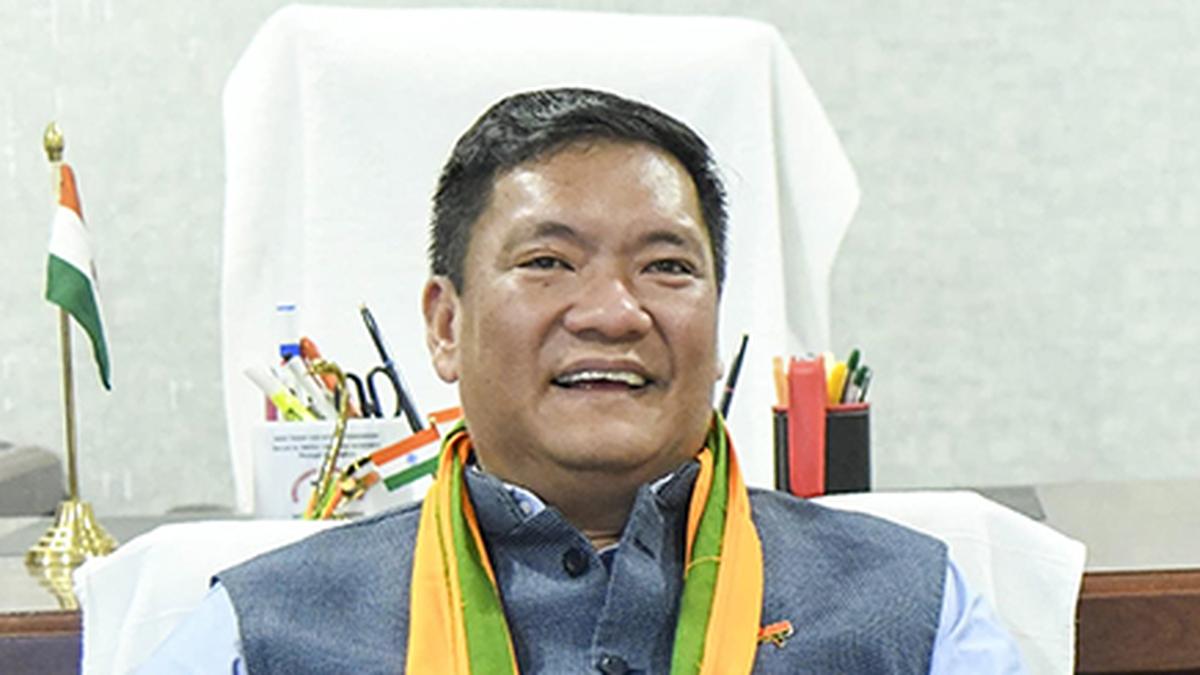
China’s ‘no’ to international water treaties worrying: Arunachal Pradesh CM
The Hindu
China's plans for a massive hydropower project on the Yarlung Tsangpo river raise concerns for Arunachal Pradesh and beyond.
GUWAHATI
Arunachal Pradesh Chief Minister Pema Khandu said China’s refusal to enter into binding international water treaties, and selective sharing of hydrological data have raised concerns in the northeastern region.
Speaking at the inaugural function of a seminar titled ‘Environment and Security’ organised at the State Assembly in Itanagar on Friday (January 24, 2025), he drew the attention of all stakeholders towards the Chinese plan to construct the world’s largest hydropower project on the Yarlung Tsangpo river, which enters Arunachal Pradesh as Siang and becomes the Brahmaputra in Assam before flowing into Bangladesh as the Jamuna.
In December, China confirmed plans to build a 60,000 megawatt dam close to the Arunachal Pradesh border in Tibet. Beijing claimed the hydroelectric project would have minimal impact on the Himalayan and sub-Himalayan regions.
The implications of China’s mega-dam project | Explained
“The dam will let China control the timing and volume of water flowing downstream, which can have devastating effects during periods of low flow or drought. The mighty Siang or the Brahmaputra river will dry up during winters, disrupting life in the Siang belt and the plains of Assam,” Mr. Khandu warned.
On the other hand, sudden release of water from the dam could cause severe flooding downstream, particularly during the monsoon season, displacing communities, destroying crops, and damaging infrastructure. “Furthermore, the dam will alter the sediment flow, affecting agricultural lands that rely on the river’s natural replenishment of nutrients,” he said.













